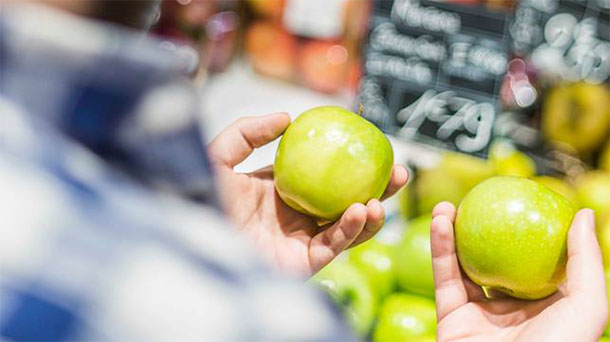- Home
- / Services
- / The city works
- / Maintenance of Public Areas
- / Waste management and cleaning services
- / Zero Waste
- / Reuse
- / Responsible consumption
Responsible consumption
Responsible consumption takes into account social, economic and environmental consequences of the product or service to be purchased. In this regard, consumers should be aware of the environmental and social impact generated by the consumption and act accordingly to try to reduce it.
Food waste
Avoid generating extra food and spoiling it before being consumed is the main goal of the measures on food waste. Approximately one fifth of the household purchased food is thrown away and therefore becomes organic waste. 65% of this food waste could have been avoided by applying best practices to purchase, preserve and prepare food. In this way, the family becomes an important element when preventing organic waste within the city. Consult the Guide to avoid food waste, Look for further information on food waste prevention on www.somgentdeprofit.cat
Home composting encouraging
Composting process is complementary to the regular waste collection service since it allows managing organic waste and vegetal remains and prevents them to be integrated into collection cycle and waste treatment. For further information click here
Other measures:
The books corner: Green Dots have a space for recycling reading books.
Reducing disposable plastic bags: The City Council supports the campaign for reducing disposable bags and encourages using cotton bags for every day shopping.
Promoting and spreading the introduction of systems for depositing and returning empties: By approving a motion in favour of introducing systems for depositing and returning empties,the City Council supports this management model. In this regard, the Council is part of the Xarxa Retorna http://www.youtube.com/watch?v=23460pIRAKo
Taking part in the European Week for Waste Reduction
Every year, the City Council takes part in the European Week for Waste Reduction thoough activities aimed at citizens.
Inmaterial consumption
Immaterial consumption means increasing the demand for services belonging to the fields of culture, social issues, education and leisure. Unlike material consumption, which promotes purchasing tangible goods, intangible consumption entails reducing energy consumption and waste generation.
Best practices (in Catalan)
- Association of Cities and Regions for recycling
- Metropolitan area of Barcelona
- Case study and best practices
- Waste Agency of Catalonia

